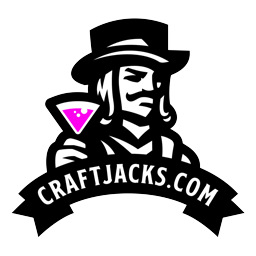Say Cheers, Clink Glasses, and Drink Together
Have you ever wondered why we even say cheers? It’s a custom, or a drinking toast, depending on how you view it, we’ve come to expect and enjoy when we’re out celebrating, but where does it originate? Let’s go through the phrase’s history and find out why we clink glasses together in celebration.
Written by CraftJack | Updated | 3 min read
Interesting Tools
- Beer BrüMate Hopsulator
- Brewing Northern Brewer Beer Making Kit
- Spirit Crystal Whiskey Glasses
- Wine Wine Decanter/Aerator

The Origins of “Cheers!”
Cheers is an expression that English stole from the French! The original French word, chiere, means “face” or “head.” The French likely used this expression as a means of getting everyone to face one another and enjoy their company.
By the 1700s, the British had absorbed the phrase into their vocabulary, assigning the word “cheers” in its place. By that point, the term took on a different meaning. Essentially, when someone says cheers, they’re saying how happy and content they are in the moment.
Ancient Cheers!
The French were not the first to use a phrase to commence some form of celebratory drinking. The ancient Greeks said “to our health” during festivities. The Romans would toast their emperors with different phrases, but each meant the start of a celebration or feast.
Why Do We Clink Glasses?
Clinking glasses have a more storied history. There isn’t just one reason we clink glasses, so here are the most common reasons people clink their glasses after saying cheers.
Poison!
Yes, you read that right! Some theories think people used to clink their glasses as a way to avoid poisoning. Although this is an old tradition, it may have informed the current glass clinking culture.
In the middle ages and before, people thought that when two people clinked glasses filled to the brim, some of the liquid would spill into each other’s cups. Since everyone would have a small amount of everyone else’s drink in their glass, people thought no one would be brave enough to attempt poisoning.
For the Gods
In the days of ancient Greece and Rome, toasts were common, both to members of their societies and to the gods. These toasts weren’t exactly like ours today. Instead of raising a glass of alcohol, they would raise bowls of animal blood or bones as a gift to the gods.
People currently think that our tradition of raising the glass when saying cheers comes partly from this tradition. Later cultures added the clinking of glasses as a way to replace the offerings to the gods.
To Ward Off Evil
In the middle ages, people were a lot more superstitious than they are now. They clinked their glasses and cheered as a way to create a lot of noise. People used to think that the noise would ward off any evil spirits that may be lurking.
Another myth about clinking glasses includes spilling some liquid on the floor to appease any spirits. The spirits would drink the liquid on the floor and leave the guests alone.
To Increase Your Senses
The final reason we clink our glasses together has a more modern justification. Drinking alcohol isn’t just about taste, but sight, smell, feel, and sound too. By clinking your glasses together, you’re able to create an experience where you use all five senses. Anyway, drinking with friends is meant to be a celebration, so why not make some noise?
Where Do Toasts Come From?
People usually toast someone for an accomplishment or to their continued well-being, but that’s not how toasts began. Toasts started by dropping a piece of bread into your drink. In the 1500s, this helped reduce the acidity of the wine and made the bread taste less stale. We bet opening wine bottles was a bit more difficult back then.
Two hundred years later, toasts transformed into an honorary saying. If a guest received a gift or it was a holiday, the guest would get a toast as an honor. That’s where the common phrase “toast of the town” comes from. The person being toasted would be recognized in their town for their achievements.
Cheers in Other Languages
Here are other common ways of saying cheers from around the world:
- Arabic — Fi Sihtuk
- Catalan - Salut
- Croatian - Nazdravlje
- Danish — Skal
- Dutch — Proost
- Estonian - Terviseks
- French — Santé
- German — Prost
- Hungarian - Fenékig
- Irish - Slainte
- Japanese — Kanpai
- Latvian - Prosit
- Portuguese — Saúde
- Russian — Na Zdorovie
- Spanish — Salud
- Ukrainian - Budmo
- Welsh - Iechyd da
Cheers for Everyone!
Now that you know the history of cheers, it’s time to gather some friends and put that knowledge to use! From the ancient Greeks to the middle ages, the act of saying cheers and raising your glass has been with us for a long time.
Although we aren’t using sacrifices to appease the gods anymore, we can still carry on the traditions of our past. When the tradition is as easy as sharing a drink and some laughs with friends, we couldn’t be happier to carry it with us!
